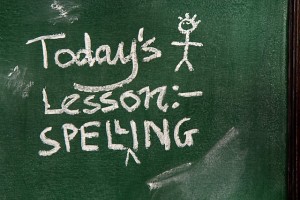Great and Useful Spelling Strategies

All the good spellers out there did not become great by accident. The fact is that they became effective spellers by hard work and learning various practiced methods. We have put together some great and very useful spelling strategies which can help everyone become an accomplished speller. There are four main spelling strategies – Rule-based, Morphemic, Phonetic and Visual and we break down each one for you below.
Spelling Strategies – Phonetic
The Phonetic strategy should be one of the first methods taught to spelling beginners. This teaches spellers when they make out a word to listen to each sound they hear in a word. Then they learn to represent each sound with a combination of letters or a letter. Furthermore, as they listen to each sound in a word, the students will learn that the sound of /a/ is actually spelled with the letter a while the sound of /n/ is correctly spelled with the letter n. This is called the phonograms as the new spellers learn to correctly emblematize specific sounds she or he hears in a word they are trying to spell. Dividing into separate sections the words they hear is a great way for new spellers to practice and master this strategy.
If you enjoyed this article then you should also read Reasons Why Grammar and Spelling Matters
Spelling Strategies – Morphemic
Having and Retaining the knowledge of how the meaning of a word actually affects and influences the way the word is spelled is what the morphemic strategies are based on. This is accomplished by teaching spellers to infer or determine the meanings of words as they examine their meaningful parts. Also knowing when to add suffixes, prefixes and roots to base words is essential and after learning this strategy, with practice, becomes automatic for most spellers. Words based on other derivatives and with Latin or Greek roots can also be taught as part of this method. Most spellers will likely use a consolidation of all four methods in their writing once they metamorphose and become more proficient.
Spelling Strategies – Rule-Based
For the ruled-based strategy there are often many probable words with various spellings possibilities which contain the same sound. This is where the new students of spelling will determinate that the sound of /j/ may be made out and written as j, g or dge, for example. Learning and knowing this rule as this point is when it will actually become very useful. Nevertheless, for English student spellers, there are numerous dependable generalizations and rules which will assist them to correctly make the right choices as they write on their own. Knowing the rules as they pertain to using C and K, the word Kitchen for example, teaches students that the sound of /ch/ is usually spelled tch after a short vowel.
Spelling Strategies – Visual
Every good speller will regularly try to spell a word in various ways as a method to determine which one actually looks accurate. The sound of /j/ which is spelled dge, aids new spellers to expand on their visual memory of words as they pertain to each individual concept. When it comes to accurately using homophones, the visual strategy is extremely important. This is because words like tale and tail or pray and prey can be visually correctly spelled by students as they get better and learn to correctly apply the visual strategy. We recommend having students play word games and do extensive reading as these will help them build their visual vocabulary memory.
You may also want to check out The 4 Most Helpful Spelling Rules
Learning and applying each one of these strategies will lead most spellers to accurate spelling. Furthermore, as their grammatical knowledge grows, so will the understanding of every method used for learning to spell words correctly.
